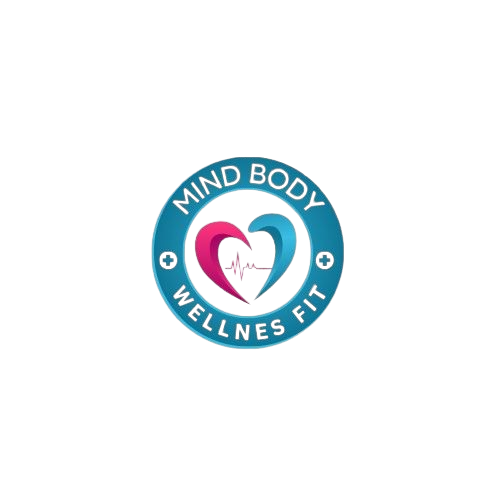Hormonal health is the foundation of overall well-being, yet it’s often overlooked or misunderstood. When your hormones are in balance, you feel energized, focused, and ready to take on the world. But when they’re out of sync, the effects can be overwhelming. From disrupted sleep and mood swings to weight gain and fatigue, hormonal imbalances can impact nearly every aspect of life.
The good news? Achieving hormonal balance is possible! With the right guidance and resources, you can restore harmony and reclaim your vitality. In this guide, we will explore how you can understand, restore, and maintain hormonal balance for optimal health.
What is Hormonal Balance?
Hormonal balance refers to the delicate equilibrium of hormones within your body. Hormones are chemical messengers that regulate a wide range of bodily functions, including metabolism, mood, energy, reproduction, and even sleep.
When your hormones are balanced, you feel at your best. However, when they become unbalanced—due to various factors like stress, poor diet, or aging—it can cause disruptions in your physical and mental health. Some of the most important hormones in maintaining balance include estrogen, progesterone, thyroid hormones, cortisol, and insulin.
Hormonal imbalances can lead to a variety of symptoms, but fortunately, there are many ways to restore balance and achieve better health.
Signs and Symptoms of Hormonal Imbalance
Hormonal imbalance is often accompanied by a range of symptoms, many of which overlap with other health conditions. Some common signs include:
- Chronic Fatigue: Feeling tired no matter how much rest you get.
- Persistent Weight Gain: Weight that’s hard to lose, especially around the midsection.
- Sugar Cravings: Overpowering urges for sweets and irregular eating patterns.
- Mood Swings: Irritability, sadness, or unexplained emotional fluctuations.
- Hot Flashes and Night Sweats: Common during perimenopause and menopause.
- Irregular Menstrual Cycles: Changes in period frequency, flow, or duration.
If you’re experiencing these symptoms, your body is signaling that something is off. Understanding the underlying causes of these issues is key to restoring hormonal balance and improving your quality of life.
Causes of Hormonal Imbalance
There are several factors that can contribute to hormonal imbalance:
- Stress: Chronic stress increases the production of cortisol, which can disrupt your other hormones.
- Diet: A poor diet, especially one high in processed foods and sugars, can lead to insulin resistance and other imbalances.
- Environmental Toxins: Chemicals in household products, food, and the environment can act as endocrine disruptors.
- Lifestyle Factors: Lack of sleep, sedentary behavior, and unhealthy habits can all contribute to imbalances.
- Aging: Hormonal changes due to perimenopause and menopause can lead to fluctuations in estrogen and progesterone.
- Medical Conditions: Conditions such as thyroid disorders, polycystic ovary syndrome (PCOS), and diabetes can also contribute to hormonal imbalances.
Identifying the root cause of your imbalance is the first step toward restoring harmony to your body.
The Importance of a Holistic Approach to Hormonal Health
When it comes to hormonal health, a holistic approach is often the most effective. Instead of simply masking symptoms, this approach seeks to address the root causes of imbalances, taking into account all aspects of your health.
A holistic hormone health plan focuses on lifestyle changes, including nutrition, exercise, stress management, and sleep, while also considering emotional and environmental factors. By incorporating these elements, you can restore balance naturally and sustainably, avoiding the need for temporary solutions like medication or supplements alone.
How Functional Nutrition Can Help Achieve Hormonal Balance
One of the most effective ways to restore hormonal balance is through functional nutrition. Unlike traditional diets that simply focus on calories or weight loss, functional nutrition takes a root-cause approach, considering your unique biochemistry, lifestyle, and medical history.
A Certified Functional Nutrition Coach can help you identify the underlying causes of your imbalances and design a personalized plan to restore balance. This could involve dietary adjustments, targeted supplementation, and stress management strategies, all tailored to your needs.
Key nutrients for hormone health include:
- Magnesium: Helps regulate cortisol and supports thyroid function.
- Vitamin D: Vital for maintaining balanced estrogen levels.
- Omega-3 Fatty Acids: Reduce inflammation and support hormone production.
- B Vitamins: Essential for adrenal and thyroid health.
By making strategic, science-backed changes to your diet, functional nutrition supports the restoration of hormonal balance from the inside out.
Top Tips for Achieving Hormonal Balance Naturally
Here are some natural hormone balancing tips that can help restore harmony in your body:
- Eat a Balanced, Whole-Food Diet: Focus on nutrient-dense foods, including vegetables, healthy fats, lean proteins, and whole grains. Avoid processed foods and excess sugar.
- Manage Stress: Chronic stress can wreak havoc on your hormones. Practice stress-relieving activities such as yoga, meditation, or deep breathing exercises.
- Exercise Regularly: Physical activity supports hormone regulation, improves metabolism, and reduces stress. Aim for a balanced routine that includes both cardio and strength training.
- Prioritize Sleep: Getting enough quality sleep is essential for hormonal health. Aim for 7-9 hours per night and practice good sleep hygiene.
- Stay Hydrated: Drink plenty of water throughout the day to help your body flush out toxins that may disrupt hormone balance.
The Role of Supplements and Herbs in Hormonal Balance
While a balanced diet and healthy lifestyle are foundational, supplements and herbs can play a supportive role in restoring hormonal balance.
Natural supplements such as magnesium, vitamin D, and omega-3 fatty acids can help regulate cortisol, support thyroid function, and promote healthy estrogen levels. Adaptogenic herbs like ashwagandha and maca root are particularly helpful for managing stress and balancing hormones naturally.
Always consult with a healthcare professional before introducing new supplements to ensure they align with your unique needs.
The Holistic Hormone Reset Membership: A Structured Approach
The Holistic Hormone Reset Membership, designed by Dr. Winnie Marayag and the OPTCI team, offers a comprehensive, personalized approach to hormonal health. This membership program includes 12 detailed training modules, a monthly food diary, recipe guides, and live coaching sessions that teach you how to support your hormones naturally.
Key benefits of the program include:
- Personalized Guidance: Tailored strategies to suit your unique hormonal needs.
- Practical Tools: Recipes, meal plans, and shopping lists to simplify healthy eating.
- Community Support: Access to a supportive group of like-minded women working toward the same goal.
Takeaway
If you’re ready to take control of your health and unlock your body’s full potential, it’s time to focus on restoring hormonal balance. Whether through dietary changes, stress management, or a comprehensive program like the Holistic Hormone Reset Membership, the steps you take today will have a profound impact on your well-being.






